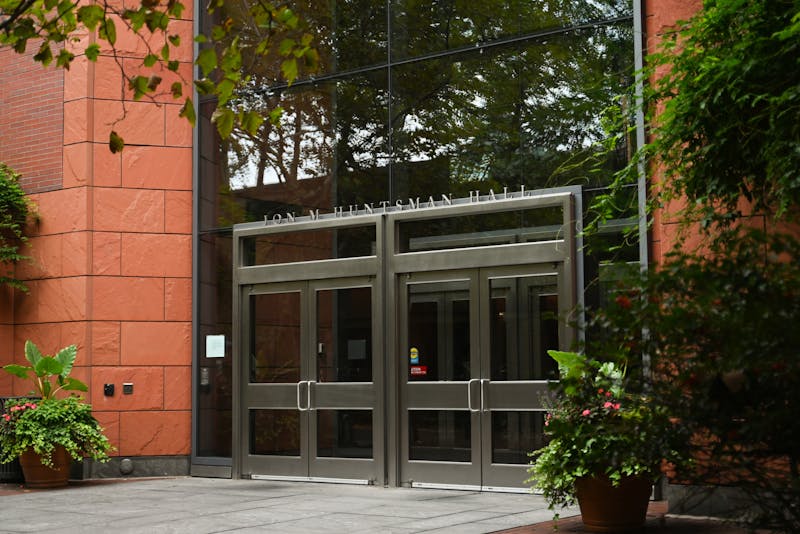'If the chairman intends to do something by the end of the year," thundered Sen. Byron Dorgan (D-N.D.), "then there will be a firestorm of protest and I'm going to be carrying the wood."
It'll be the last straw to break the camel's back, it'll put a giant monkey on the public's back and it'll get civil-rights groups' backs up. If the Federal Communications Commission chairman succeeds in deregulating media ownership in the next two months, we will have witnessed the triumph of sneakiness in the public arena.
The FCC is operating on an accelerated timeline, giving the public little chance to respond. Yet, the public outcry of three years ago over the same issue has diminished to little more than a whisper. Where's the noise, people?
FCC Chairman Kevin Martin wants to loosen long-standing regulations on cross-ownership. With a few exceptions, companies are currently prohibited from owning both a newspaper and a television or radio station in the same city. If the chairman does away with these rules, media moguls like Sam Zell and Rupert Murdoch will be rejoicing. The way to greater media consolidation will be clear.
Opening the door to more media mergers and acquisitions should raise concerns over preserving diversity of opinion. Imagine if Murdoch set his sights on Philly. He already has the local Fox News station. Under Martin's proposed changes, Murdoch could conceivably buy out The Philadelphia Inquirer and other local outlets.
Supporters of the changes contend that local media wouldn't necessarily be Fox-i-fied. They believe current restrictions are completely passe.
"Joint ownership of multiple media outlets in a market has very little if any documented effects," said Joel Waldfogel, chairman of Wharton's Business and Public Policy Department and former consultant to the FCC.
According to Waldfogel, owners are out to make profits so they tend to follow consumer preferences. In fact, diversity of content can supposedly increase somewhat if owners try to draw in distinct audiences for their various outlets.
I don't know if I buy it.
Even if the strings are long and the wires are hidden, Kermit will still dance for Jim Henson. We shouldn't underestimate the effects a change in ownership can have on a media outlet. An AFL-CIO survey of its members who work in the media showed that "front-line employees believe industry consolidation . has seriously compromised the quality of news reporting and stifled diversity of opinion."
The media industry is not like the food industry or the auto industry. Press, radio and TV peddle a different set of wares, which directly affect our perceptions of the world. Even if doomsday predictions about creating armies of brainwashed zombies are overblown, the prospect of a handful of companies controlling the flow of information is worrisome.
Three years ago, groups as diverse as the National Organization for Women, the National Rifle Association and the United States Conference of Catholic Bishops thought media consolidation was a problem. When then-chairman Michael Powell tried to push through similar deregulations, the FCC received record amounts of mail - nearly 3 million protests against changing the rules.
The agency then got smacked down (in Philadelphia, no less) by the U.S. Third Circuit Court of Appeals for failing to provide convincing reasons for "its particular chosen numerical limits for . cross-ownership of media within local markets."
Ever since slinking home with its tail between its legs, the FCC has been studying the issue and pondering its next move. Having quickly forgotten its earlier defeat, the agency has decided to accelerate the rule-making process. Earlier this month, Martin announced his intention to hold a final vote on deregulation in December. He gave only five business days' notice for the agency's next public hearing, held yesterday. That's not enough time for the public to respond with objections.
But the media is making surprisingly little noise about Martin's questionable tactics. It hasn't been covered in The Philadelphia Inquirer or mentioned in our beloved DP. The New York Times had one article on it.
Forty representatives to the House signed a letter asking the chairman to hold his horses, but the signatures of all 19 reps from Pennsylvania were conspicuously absent.
Whichever way you happen to fall on the question of media regulation, it is bizarre that mainstream media hasn't been covering a topic which impacts its own future. Considering the lack of respect the FCC is showing for public opinion, the general silence is alarming.
Sen. Dorgan, I feel your pain. For all who share this sentiment, it's time to act. Letters to Washington, columns in the DP, angry shaking of fists - take your pick. The firestorm awaits.
Rina Thomas is a Wharton and College senior from New Orleans. Her e-mail address is thomas@dailypennsylvanian.com. The Gospel According to Thomas appears on Thursdays.
The Daily Pennsylvanian is an independent, student-run newspaper. Please consider making a donation to support the coverage that shapes the University. Your generosity ensures a future of strong journalism at Penn.
DonatePlease note All comments are eligible for publication in The Daily Pennsylvanian.







